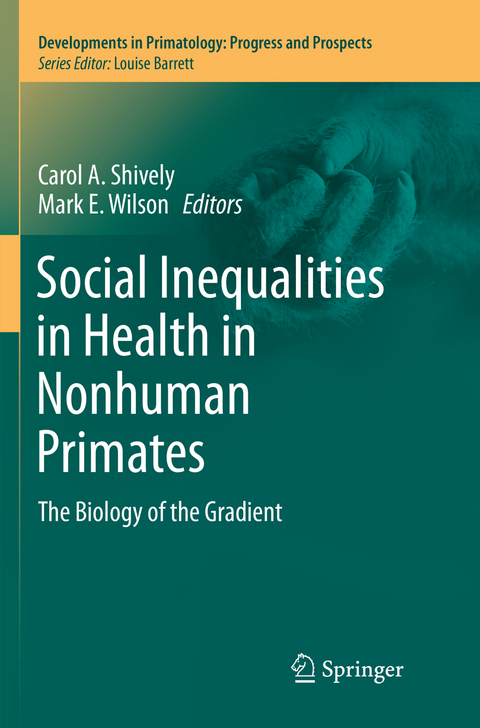
Social Inequalities in Health in Nonhuman Primates
Springer International Publishing (Verlag)
978-3-319-80904-5 (ISBN)
Carol Shively, Ph.D. Professor Pathology Wake Forest School of Medicine cshively@wakehealth.edu (336) 716-1524 Mark Wilson PhD, Professor Department of Psychiatry and Behavioral Sciences Emory University mwils02@emory.edu
Introduction: Relevance of NHP Translational Research to Understanding Social Inequalities in Health in Human Beings.- An Introduction to the Female Macaque Model of Social Subordination Stress.- Effects of Social Subordination on Macaque Neurobehavioral Outcomes: focus on Neurodevelopment.- The Effects of Social Experience on the Stress System and Immune Function in Non-Human Primates.- The Influence of Social Environment on Morbidity, Mortality, and Reproductive Success in Free-Ranging Cercopithecine Primates.- Social Status and the Non-human Primate Brain.- Emotional Eating in Socially Subordinate Female Rhesus Monkeys.- Dietary Modification of Physiological Responses to Chronic Psychosocial Stress: Implications for the Obesity Epidemic.
| Erscheinungsdatum | 20.07.2018 |
|---|---|
| Reihe/Serie | Developments in Primatology: Progress and Prospects |
| Zusatzinfo | V, 178 p. 15 illus., 10 illus. in color. |
| Verlagsort | Cham |
| Sprache | englisch |
| Maße | 155 x 235 mm |
| Gewicht | 2876 g |
| Themenwelt | Studium ► 1. Studienabschnitt (Vorklinik) ► Physiologie |
| Naturwissenschaften ► Biologie ► Zoologie | |
| Sozialwissenschaften ► Soziologie | |
| Schlagworte | Animal Psychiatry • Neurobiology • Primate Sociology • primatology • Psychoneuroendocrinology |
| ISBN-10 | 3-319-80904-0 / 3319809040 |
| ISBN-13 | 978-3-319-80904-5 / 9783319809045 |
| Zustand | Neuware |
| Haben Sie eine Frage zum Produkt? |
aus dem Bereich


